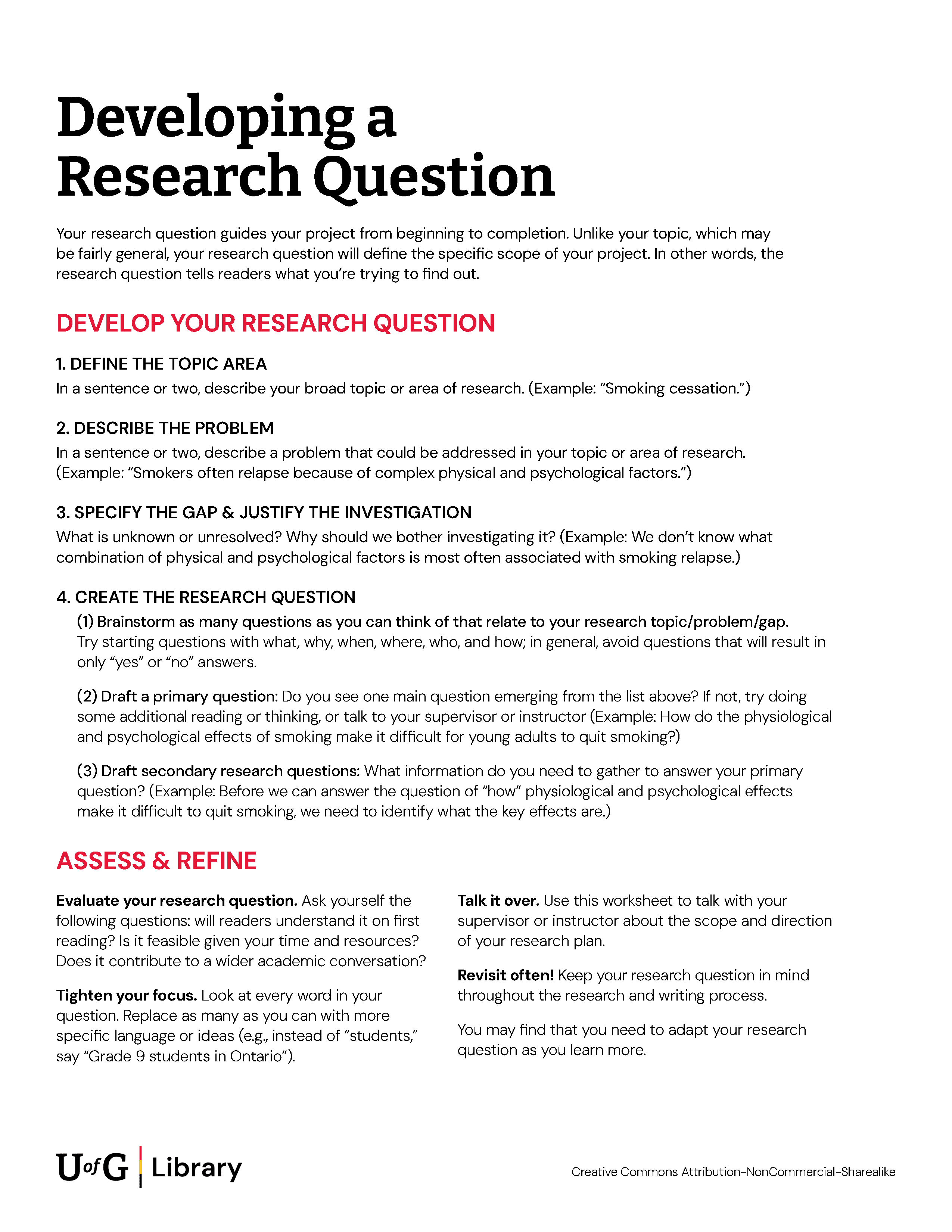Time commitment
Less than 2 minutes
Description
This handout provides guidance for developing research questions, which are essential for establishing scope and direction in a literature review and/or research plan.
Infographic

Downloads
Transcript
Your research guides your project from beginning to completion. Unlike your topic, which may be fairly general, your research question will define the specific scope of your project. In other words, the research question tells readers what you're trying to find out.
Develop your Research Question
- Define the topic area: In a sentence or two, describe your broad topic or area of research. (Example: Smoking cessation.)
- Describe the problem: In a sentence or two, describe a problem that could be addressed in your topic or area of research. (Example: "Smokers often relapse because of complex physical and psychological factors.)
- Specify the gap and justify the investigation: What is unknown or unresolved? Why should we bother investigating it? (Example: We don't know what combination of physical and pscyological factors is most often associated with smoking relapse.)
- Create the research question
- Brainstorm as many questions as you can think of that relate to your research topic/problem/gap. Try starting questions with what, why, where, who, and how; in general, avoid questions that will result in only "yes" or "no" answers.
- Draft a primary question: Do you see one main question emerging from the list above? If not, try doing some additional reading or thinking, or talk to your supervisor or instructor (Example: How do the physiological and psychological effects of smoking make it difficult for young adults to quit smoking?)
- Draft a secondary research questions: What information do you need to gather to answer you primary question? (Example: Before we can answer the question of "how" physiological and psychological effects make it difficult to quit smoking, we need to identify what the key effects are.)
Assess & Refine
Evaluate your research question. Ask yourself the following questions: will readers understand it on first reading? Is it feasible given your time and resources? Does it contribute to a wider academic conversation?
Talk it over: Use this worksheet to talk with your supervisor or instructor about the scope and direction of your research plan.
Tighten your Focus. Look at every word in your question. Replace as many as you can with more specific language or ideas (e.g., instead of "students," say "Grade 9 students in Ontario").
Revisit often! Keep your research question in mind throughout the research and writing process.
You may find that you need to adapt your research question as you learn more.
Download the PDF for access to the worksheet.
- Writing
Tags
License

This work is licensed under a Creative Commons Attribution-NonCommercial-ShareAlike 4.0 International License.
Recommended
- Ask Chat is a collaborative service
- Ask Us Online Chat hours
- Contact Us

